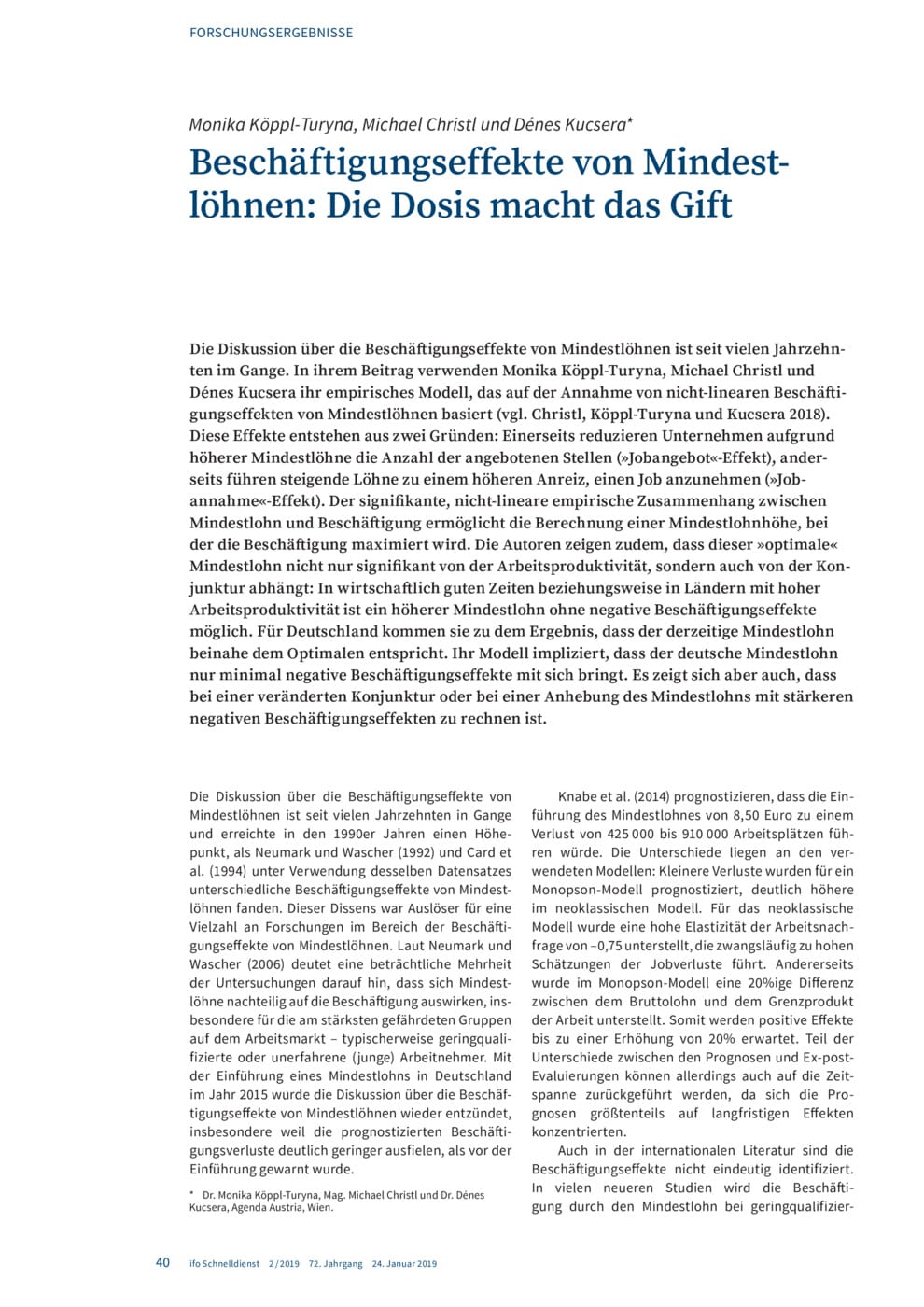Employment Effects of Minimum Wages: the Dose Makes the Poison
ifo Institut, München, 2019
ifo Schnelldienst, 2019, 72, Nr. 02, 40-46

The debate on the employment effects of minimum wages has been going on for many decades. In their article, Monika Köppl-Turyna, Michael Christl and Dénes Kucsera, Agenda Austria, use an empirical model based on the assumption of non-linear employment effects of minimum wages. These effects arise for two reasons: on the one hand, companies reduce the number of jobs offered due to higher minimum wages; while rising wages create a higher incentive to accept a job on the other. The significant, non-linear empirical correlation between minimum wage and employment makes it possible to calculate a minimum wage level at which employment is maximised. This minimum wage level depends not only on labour productivity, but also on the business cycle. In economically good times or in countries with high labour productivity, a higher minimum wage is possible without negative employment effects. For Germany, the authors come to the conclusion that the current minimum wage is almost optimal. They also show, however, that a change in the economy or an increase in the minimum wage can be expected to have stronger negative effects on employment.